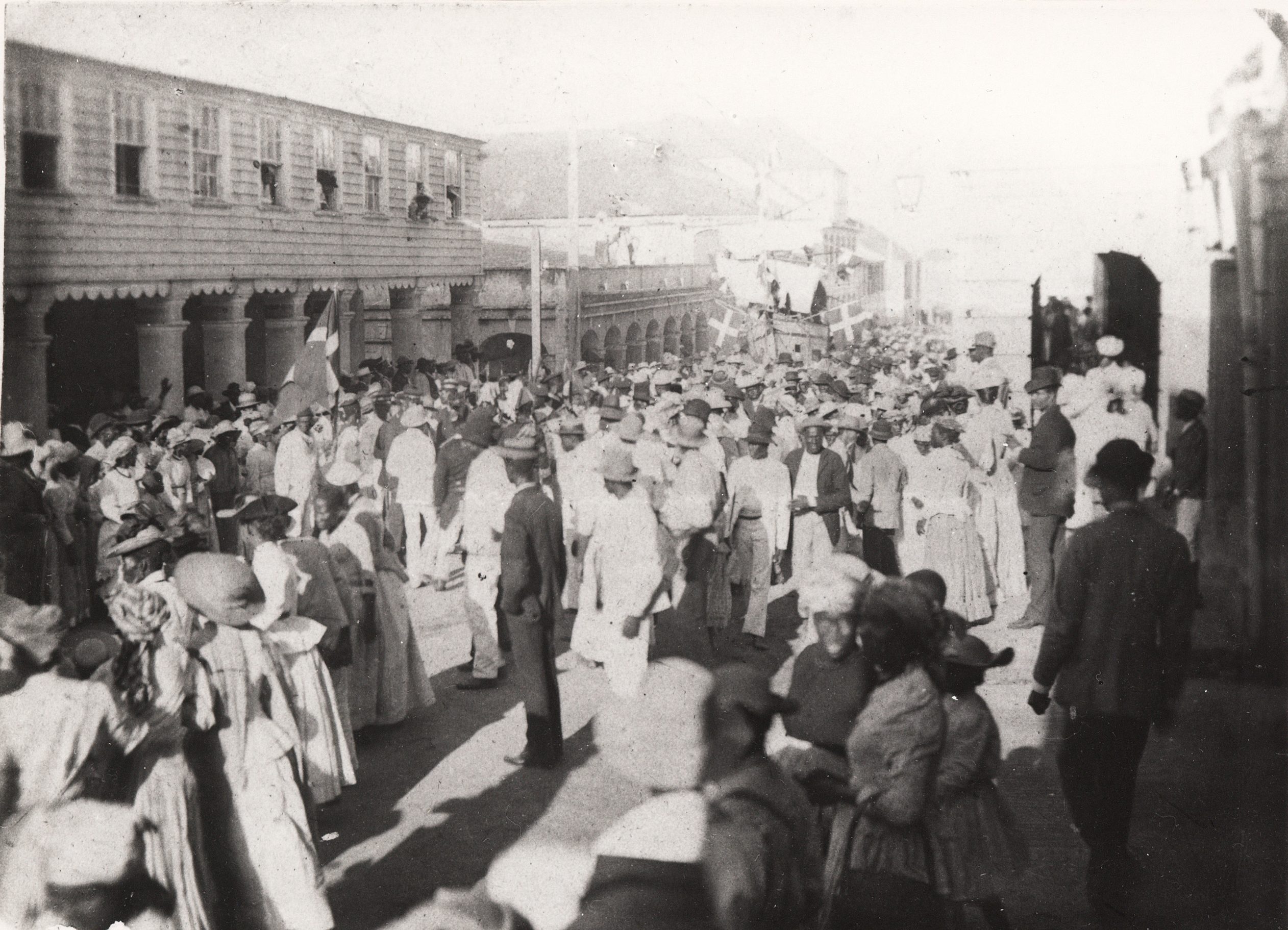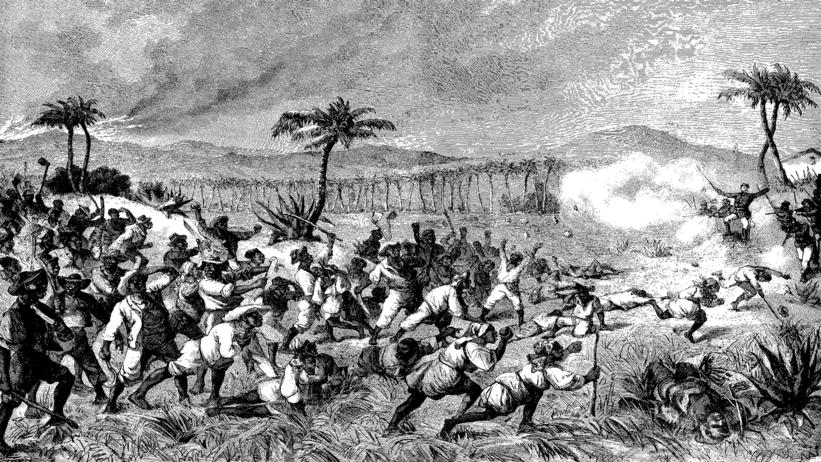
It was with a heavy heart to hear the news that the St. Croix Avis newspaper will cease publication in 2024 after 180 years serving the people of the Danish West Indies, now the United States Virgin Islands. On June 4, 1836, Gov. Gen. Peter von Scholten introduced free compulsory education for enslaved children, known as the Country School Ordinance. The governor knew education was necessary for free people. Although the islands were owned by Denmark, Scholten chose English and not Danish as the language of instruction for the slaves because he believed that English would benefit them more in their future lives.

In this task of educating enslaved children, the Moravian Brethren were chosen by von Scholten to supervise and educate children in the country schools. It only seemed natural because the Moravian Brethren already knew the population and had instructed them in Creole. Thus, eight country schools were built, with Great Princes School being the first. The other seven schools were Mount Victory, Diamond, Two Williams, Peter’s Rest, King’s Hill, Green Cay, and La Vallee, which all were finished in 1842.
In 1844, two years after the country schools were built for enslaved children, the St. Croix Avis began publication under Richard Hatchett, editor, in Christiansted. With the establishment of the St. Croix Avis newspaper, the Moravian Church played a major role with “free slaves,” unenslaved, and enslaved children learning to read and write. The paper ensured its part of a literate Danish West Indies Black population. Nevertheless, the St. Croix Avis was the successor of the Royal Danish American Gazette. It was the first known local newspaper published in the Virgin Islands.
Four years after the paper was established, the 1848 emancipation of enslaved Africans in the Danish West Indies took place, which the paper wrote about, giving us today some historical understanding of what happened 175 years ago, including in the 1860s, the time when Mary Thomas, known as Queen Mary in our history, arrived from Antigua to the Danish West Indies. The paper wrote about the 1878 “Fireburn” insurrection. Hatchett, being the editor of that time, continued to publish the St. Croix Avis under the authority of the Danish West Indies government.
On Jan. 3, 1865, the year when President Abraham Lincoln was assassinated, it was edited by Hans Hatchett, according to the Library of Congress where the St. Croix Avis was digitized. The newspaper was published every Tuesday and Friday for proprietors. Throughout its early publication, the paper had three base columns about four pages in length and sometimes a fifth or sixth page. In other words, the paper continued to educate the community as it grew.

From 1844 until 1917, the content of the paper mostly was Danish, indicating a Danish-speaking island. At that time, the common Danish-language section of the paper included Ansaettelser, Auktion, Proklama, and Bekendtgorelse. According to the Library of Congress archives, “The shift to an English-language publication began after the United States purchased the Danish West Indies from Denmark in 1917.” The paper also captured in writing, printing, and photos when the Danish flag came down and the United States flag went up in 1917 during the transfer ceremony.
The St. Croix Avis reported on a wide range of news or topics such as the weather, rainfall, anniversaries of major events, and acknowledging and observing past disasters such as hurricanes, earthquakes, etc., etc. Also, the paper reported on the emergence of the Black Labor Union movement led by David Hamilton Jackson, and the 1916 strike when Crucians fought for better living conditions, wages, and the right to be treated as humans, not as slaves. And they had emancipated themselves decades ago.
The paper also included coverage not just from the Virgin Islands, but throughout the Caribbean, as well as national and international news. “The content of the St. Croix Avis offers a critical reflection of its unique importance as the first newspaper of the United States Virgin Islands,” notes the Library of Congress archives. In other words, the paper reflected the people of these islands and being aware of what is taking place worldwide without social media, Facebook, cell phones, etc., that we have today.

Think about how the St. Croix Avis educated the public. The paper did an extraordinary job for the love of its community. As a people, we should never take for granted how our history unfolded in the St. Croix Avis newspaper. It is the printed form that reminds us how the paper served the enslaved and “free slaves” in the Danish West Indies through learning to read, write and the present. Below are a list of names of editors and publishers from 1844 to the present.
Publishers and editors: Richard Hatchett, 1844; Hariet Hatchett, 1864; Hans Hatchett, 1865; Peter Hatchett, 1867-1868; Hans Hatchett, 1869-1872; Lauritz Holm, 1872-1873; Christian Dahl, 1874-1876; Julius Knuthsen, 1877; John T. Quin, 1878-1879; A. Paludan Muller, 1878-1879; Albert Hanschell, 1880-1883; John T. Quin, 1884-1916; Canute A. Brodhurst Sr, 1940-1980; G. Johansen, Fred Clarke, and Rena Brodhurst to the present. These names and dates came out of the Library of Congress archives.
Nevertheless, the entire Virgin Islands community should pay tribute to Rena Brodhurst, who sat at the helm of the St. Croix Avis for donkey years, serving the people of these islands. I know some people are dead heart Avis readers. They would only read the Avis. However, it is so sad that such an historic institution like the St. Croix Avis is closing its doors. I assisted for years students, researchers, and others locally, nationally, and all over the world in their research of various topics, particularly about our history, and the St. Croix Avis archives were part of the gathering of information. Believe me, the paper’s archives are extremely valuable to the world audience.
Maybe I am too foolish. I hope the paper can open back up where it can be competitive by using the latest technology and know-how in a technological society. Nevertheless, we all would have agreed that the Avis champions the cause of the people through bad and good times.
— Olasee Davis is a bush professor who lectures and writes about the culture, history, ecology and environment of the Virgin Islands when he is not leading hiking tours of the wild places and spaces of St. Croix and beyond.





